Throwback Thursday: Back-to-school advice for STEM students
What every middle-to-high schooler should know.
Image credit: Bayside STEM academy, via Stanford at https://ed.stanford.edu/news/new-design-thinking-curriculum-targets-middle-school-students.
“Education is an admirable thing, but it is well to remember from time to time that nothing worth knowing can be taught.” –Oscar Wilde
Education has changed a lot over the past few years, but there are a few things that have always been the case, whether we’ve always realized it or not. One of them is that anyone who’s willing to put the right amount of time, effort and hard work in has the potential to be a scientist, programmer, engineer, doctor, mathematician, researcher, analyst or technician among many other careers. What was once only an option (for social, not inherent reasons) to independently wealthy, white men is now a viable career choice to all. If you are — or even if you just know — a young person with an interest in science, technology, engineering or mathematics, this is information everyone should know.
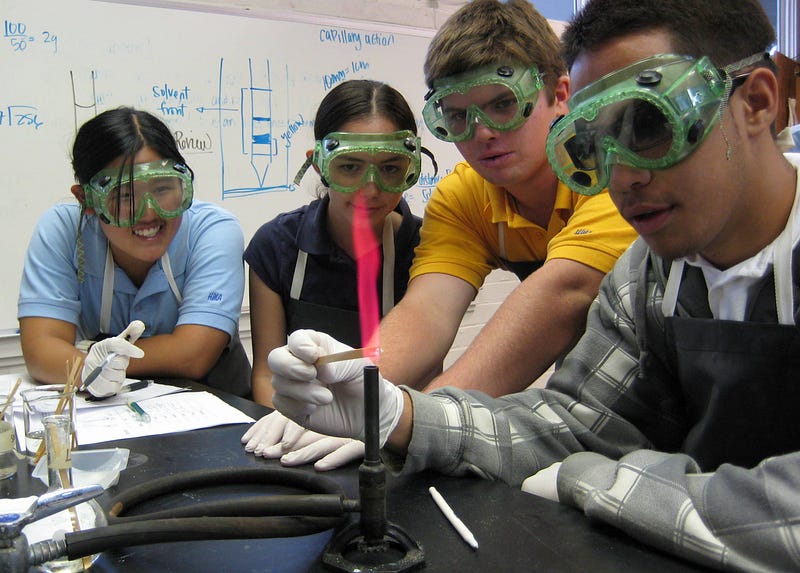
First off, no matter who you are, where you’re from, what school you’re at, or what your age, gender, or economic background is, you can do it! If you walk into any major college or University with a strong motivation or drive to specialize in any science or mathematics, the best advice is to take as many of the most advanced science and math classes as you can.
Let’s start with math. As general advice for any student, regardless of what country you’re in, I can definitively say that learning math up through and including Calculus should provide you with all of the tools you’ll need to head down any scientific path. (And even stopping short of calculus — say, with trigonometry or pre-calculus — shouldn’t pose a difficulty if you’re willing to take calculus your freshman year.)

As far as science goes, knowing a good deal (i.e., a solid year-long course) about the three major sciences — Physics, Chemistry, and Biology — will give you a solid background to progress forward in practically any scientific discipline. (Including engineering.) I highly recommend taking all three; you will learn valuable ways of thinking and problem solving from each course that are distinct from the other two. If you can take an advanced version of each of these courses (either Advanced Placement or International Baccalaureate), that should position you even more strongly. Although I highly recommend doing this, there’s nothing that’s going to hinder you from being an excellent scientist if you have to take the introductory versions of these courses in college.
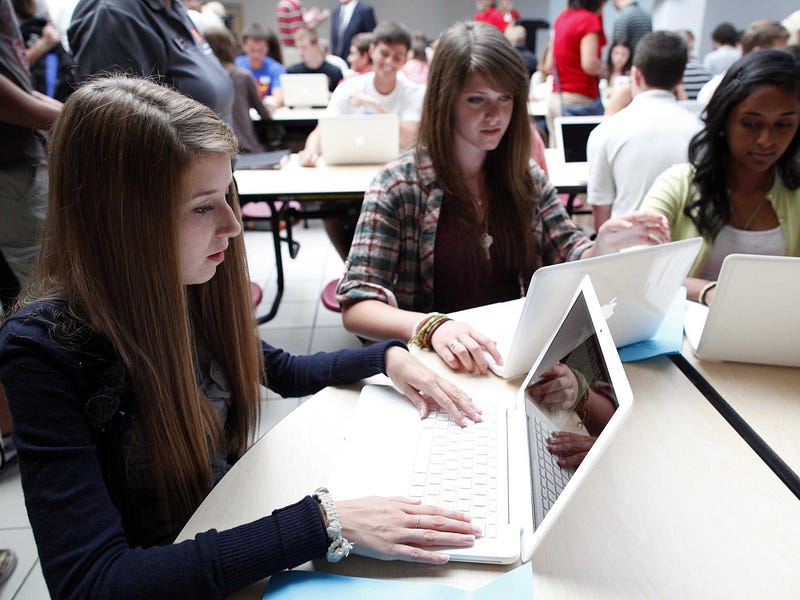
You might hear your peers or friends grumble something like, “when am I ever going to use this?” Depending on what you grow up to do, the answer may, in fact, be never. You may never use the things you’re working hard to learn. But there is a very good reason to learn them anyway, and it’s a very simple reason: you need to challenge yourself. You need to learn new things, and you need to force your brain to learn how to solve problems it’s never had to solve before. Imagine two versions of yourself, and the brains inside these two versions: one that only learned things you needed in your adult life, and one that learned as much as you could about as many different things as you could. Which version, do you think, would have the stronger brain? Would have the better problem-solving skills? Would be better able to tackle the unknown challenges that lie ahead?
I’ll say it once more: learn as much as you can about as many different things as you can. Challenge yourself!
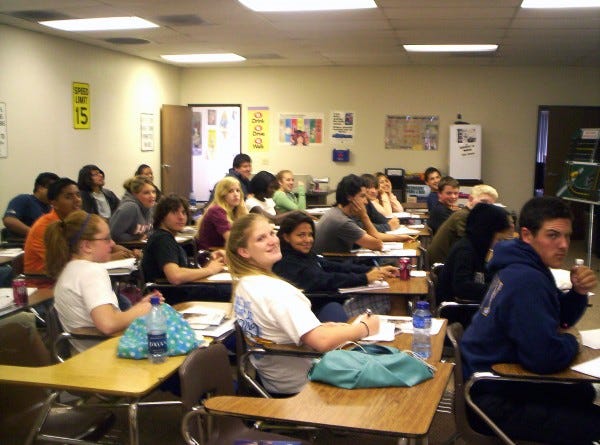
If this were 20 years ago, I wouldn’t recommend these next two things; as it stands, these are becoming more and more vital to success. But one thing you’re definitely going to want to do is learn computer programming.
Not just computer science or computer usage (or even computer engineering), mind you. Computer programming. If you’re going to become a scientist, you’re going to need to know how to make a machine do repetitive tasks that no one has made it do before. If you can learn one object-oriented language (my choice was C++, the modern choice is Python, but any language will really do), you will be in far superior shape than if you need to begin figuring it out in college (or later). Learning how to program is something that, perhaps surprisingly, gets very difficult to do for the first time the older you get. So start learning it before you get to college. For those of you who happen to be girls, don’t you dare let sexism keep you away from it. In 2014, in the United States, there are still entire states that had zero girls take the AP Computer Science test. There is no excuse for this.
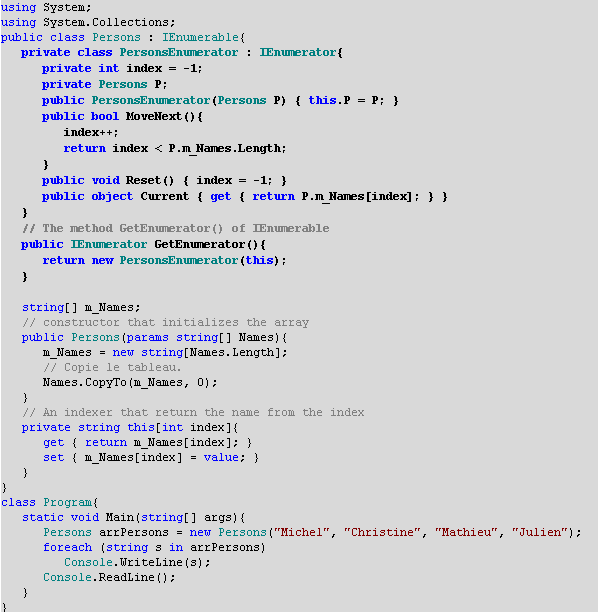
Speaking of language, no matter what scientific field you’re planning on going into, you’ll definitely want to become as proficient as possible in English.
As far as I know, all of the hard sciences (although math is possibly the lone exception) currently conduct business primarily in English. If you want to learn modern cosmology? English. Learn about superconductors? English. Molecular biology? Explosives? Chemical engineering? English, every single one. You will never be sorry for it in any of these fields if you spend the time now becoming as close to fluent in English as possible.
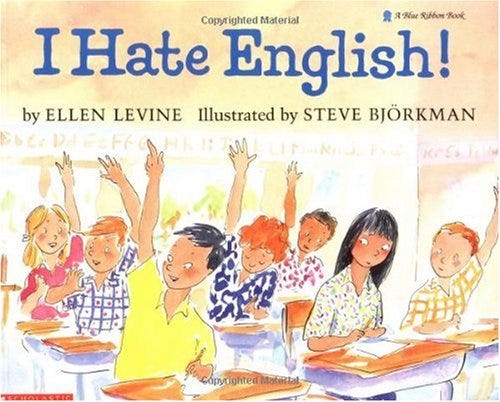
Those are the basics, and realistically, you’ll be completely prepared to head off to any College or University and become a competent (and possibly a great) scientist with this background.
But what if you want to get ahead? What if you wanted to give yourself as many advantages as humanly possible?
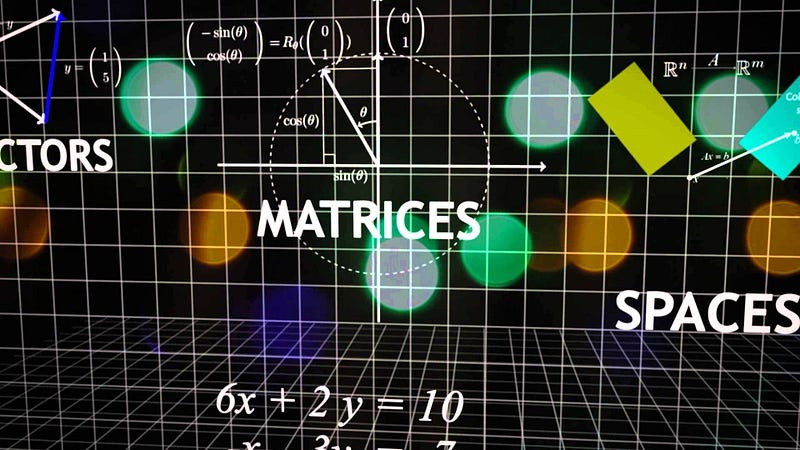
Many people will advise you to start looking farther down the line, and to start learning more and more specialized things as early as possible. Examples? For math, learning multivariable calculus, linear algebra, and differential equations. For physics, you could start on advanced mechanics, electricity and magnetism, and quantum mechanics. For chemistry, you could start learning organic and/or physical chemistry. And for a biologist, I’d probably go with molecular biology as the first advanced course.
But none of that is my advice. You won’t fall behind or create any difficulty at all for yourself by waiting until college to learn about those specific things. But what you can’t replace is the time you spend, while you’re still young, thinking about the big ideas that are out there. And there are a number of incredible reasons to spend that time doing exactly that while you’re still a teenager. In my experience, reading and learning about those ideas that fascinate you will be far more valuable to you than delving deep into the advanced undergraduate material while you’re still in high school. How so? Let me explain…
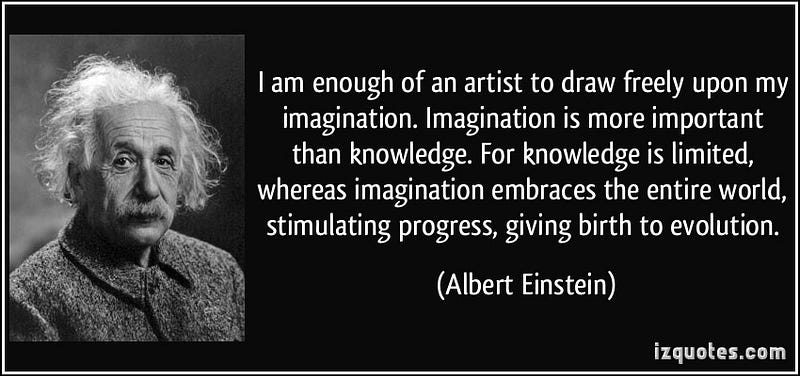
That creativity, that imagination, that ability to find that new approach to the problem everyone else is working on is what’s going to make you a great scientist. We don’t have courses on it, but that’s the most important thing to foster, especially at your age.
So read. Talk to knowledgeable people, including your peers. Search the internet. Find books, both modern and a little older. (Sometimes, the best new ideas were actually old ideas from 50+ years ago.) And don’t worry about learning things as deeply as possible; teach yourself how to find the answers to your questions (and to brush up against the limits of our knowledge) instead. You’ll be much better prepared for what lies ahead, and many of those things are things you wouldn’t ever expect. Here are a few.
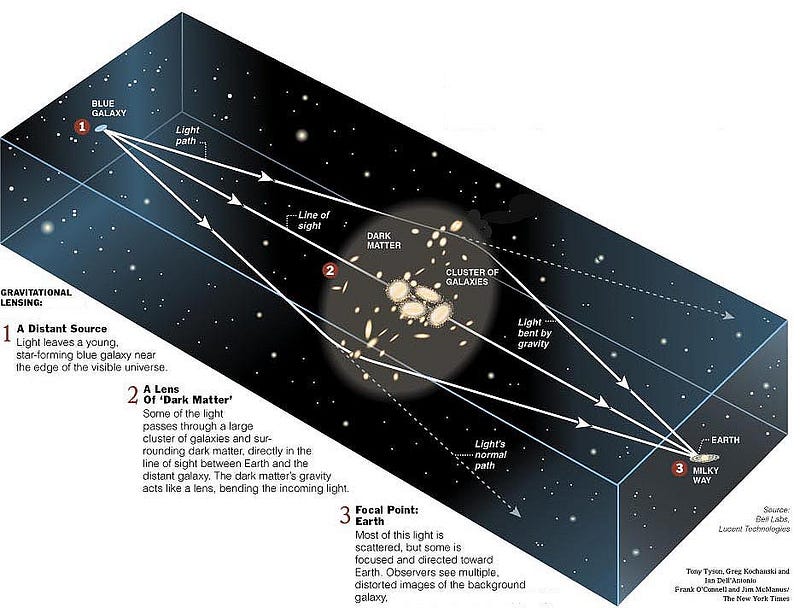
1.) You will grow and change as you discover new things. This is not an admonishment of what you don’t yet know; this is a call for you to recognize that we are learning new things all the time, and that means that the thing you’d be most excited to do doesn’t exist right now. Sixty years ago, there was no such thing as “planetary science,” because the science of other planets was a total unknown. 30 years ago, nanotechnology was a pipe dream. Twenty years ago, were certain that there was no such thing as dark energy. And “junk DNA” might not be junk at all, as we’re only just learning in the 2010s.
Do any of these pique your interest? My point is that the career you might wind up having down the road may not even exist right now. Don’t try to prepare for the one thing you think you want more than anything else to the exclusion of everything else. Learn a variety of things; if your love of learning isn’t limited to just one narrow thing at this early age, the career you’re prepping yourself for may not even exist when you become an adult.
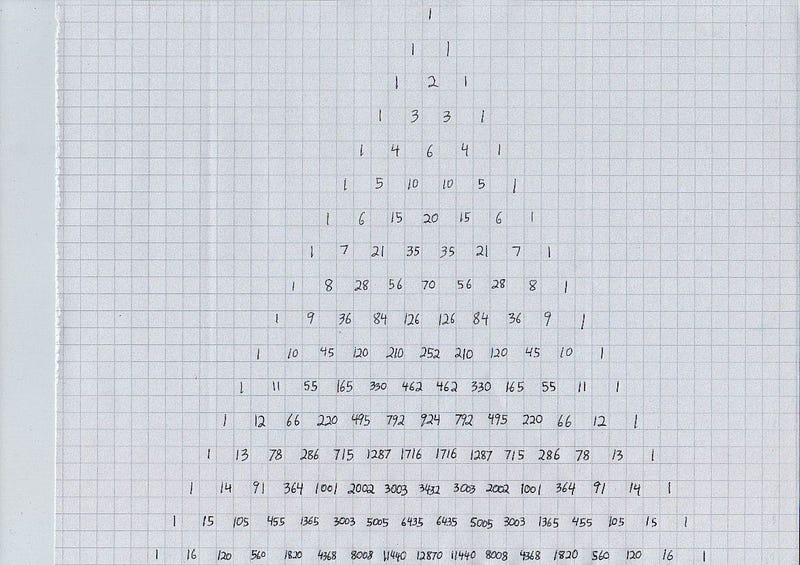
2.) “Useless” skills are rarely useless. For those of you who don’t know me, I’m a theoretical astrophysicist, with a Ph.D. in physics. I remember my first year in graduate school; I was in my electromagnetism class, which consisted of a lot of finding solutions to partial differential equations. Here’s a funny set of facts for you:
- As an undergraduate, I was a B- student (at best) when it came to electromagnetism.
- I hated my undergraduate math courses (and the professor who taught them) that covered the techniques we were using now, in this class. I only had one semester that covered partial differential equations, and I wasn’t even good at it.
- I had learned about a wide variety of sciences in both High School and College, and didn’t really begin to fully specialize until the start of graduate school.
- And I had taken time off after college — against the advice of every physics professor — to teach high school before applying to graduate school.
Why is that funny? Because you might assume that these facts put me at a tremendous disadvantage. To be honest, to some extent, they did. But there were components of those problems that I was actually better at than everyone else in my class; I had advantages too. Yes, in some ways my toolkit (of problem solving) was a little deficient, and I had to work harder than everyone else to shore up those weaknesses. But I also had skills and talents that no one else had, because I spent time honing them, because I had put the work in to becoming good at unusual things. I could do ridiculous combinatorics in my head; I could see integral solutions to certain types of problems before anyone else; I could decompose problems into spherical harmonics more quickly than I’d ever realized. The first two were skills I developed as a teenager, the third was something that came about easily because of other skills I had learned.
These skills weren’t the things I was supposed to have learned, but I had them and others didn’t, and that made me uniquely valuable. Which brings up another important point…

3.) You will get better at the things you put your effort into. Do you see what word I chose? Effort. Not, as people commonly assume, time. When you’re trying to acquire a new skill, trying to learn how to solve-and-attack a new class of problems, trying to learn a new technique, the amount of time it will take you to become competent at it will vary tremendously. But it’s always going to require effort, and a sustained effort, until you know it and are as adept with it as you want. And the bigger, broader and deeper your initial knowledge base is, the more options and the more potential you’re going to have.
You develop those skills by doing whatever it is you’re trying to become good at. If you want to paint, you paint. And you paint progressively more intricate, difficult paintings. If you want to play an instrument, you play it. And the more you play, the greater the variety and difficulty of music you gain the ability to play, and play well. If you want to master a technique, you practice that technique, you apply it in as many ways as you can think of, and you learn it inside-and-out. And — in my case — if you want to become good at an aspect of theoretical physics, you practice by solving problems. Don’t skimp on the hard ones; work up to them and don’t give up until you take them down! Which brings up another couple of points…
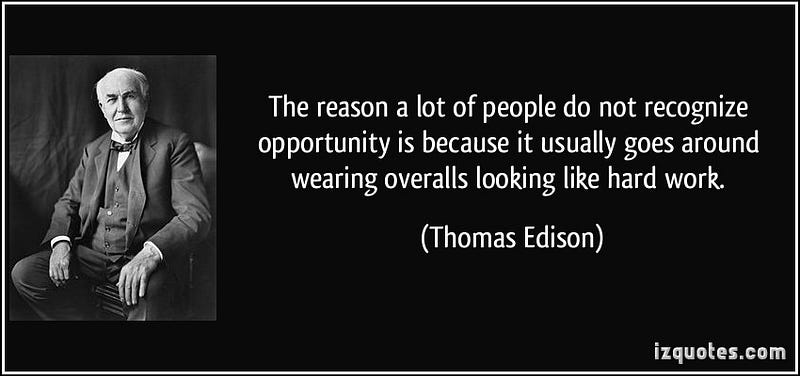
4.) If you don’t enjoy the work you do to gain these skills, you aren’t going to enjoy that work in the future. A lot of times, I’ve seen people take the mindset of, “well, I hate what I’m doing now, but if I just jump through these hoops, I’ll be able to do the things I want to do.” That’s all well-and-good, but are you sure that the “things you want to do” don’t involve just doing more of the work you hate?
You are constantly going to be using the skills you’ve acquired, and if you don’t love the day-to-day journey of doing that work, what makes you think that doing more of that work will be satisfying? Because it’s in the service of some greater problem that you are interested in? Not likely. That isn’t to say you shouldn’t work through some of the more difficult, tedious things because there are broader applications that you want to be able to do, but at some point, you need to enjoy the work you’re doing. Otherwise, you’re just going to end up resenting what you’re working on, and that’s not good for anyone.
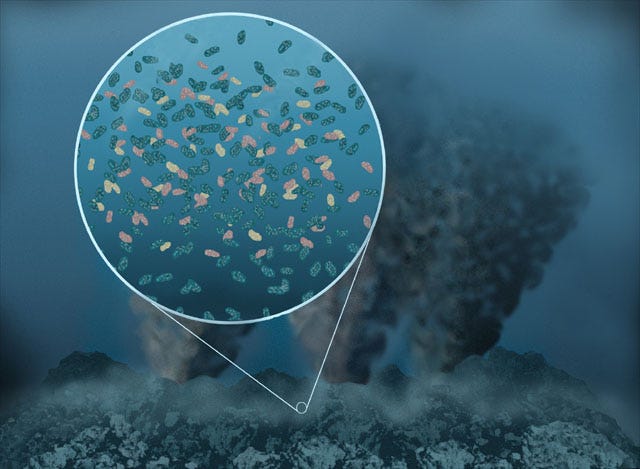
5.) Start thinking about the big questions now, but… It’s the big questions that lure us in. In biology, it’s often the evolution and origin of life; in cognitive science, it’s the question of consciousness and where it comes from; in physics, it’s pondering the fundamental nature of matter or spacetime or the fate of the Universe. You’ll read about them, you’ll listen to very smart people’s opinions about them, and you’ll develop ideas about them.
That’s good!
But there’s a danger associated with developing your own ideas when you have insufficient knowledge to fully comprehend all of their nuances. (And trust me, you won’t fully comprehend them until you’ve been working on them for many, many years.) When it comes to those initial ideas that you have…

6.) Do not become too attached to these ideas! As you learn more, you will be required to revise your understanding of those ideas, because — and I guarantee you this — your ideas about what is already known are incomplete and flawed. This is not a knock at you; this happens to everyone. I hear stories all the time about a kid genius who’s doing incredible, advanced things, and to be honest, I find it tiresome. Yes, there are some teenagers who are presently at the level I was at when I was a graduate student, and that in itself is very impressive. But they’re not overthrowing relativity, they’re not solving string theory, and they’re not disproving quantum mechanics: no one is.
They may be working on understanding those things, they may be learning about the limits of our understanding there, and — I’m not going to lie — that’s incredible stuff. But if they want to move forward, and if anyone studying these things wants to move forward, they’re going to have to come to terms with the fact that some of the details, ideas and conclusions that are in their head are wrong, and need to be replaced with what’s correct. Many scientific careers have ground to a screeching halt because one person was simply too arrogant to say, “oh, that’s evidence I can’t account for, and so my idea needs revising, reconsidering, or is just wrong.”
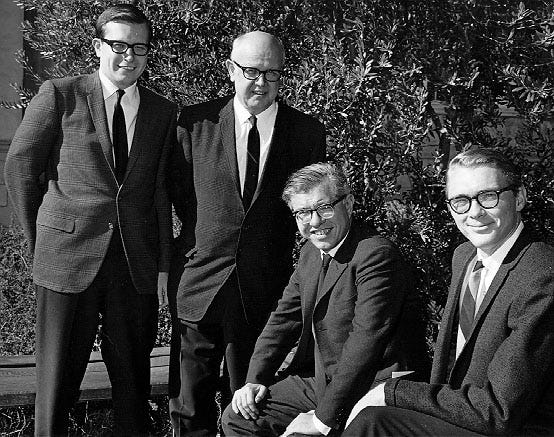
There’s no one, universal “oh, just do this and you’ll have a career doing what you want to do” piece of advice to give out. Learn what you love and love what you learn. Read a diversity of materials, but look out for self-promoters, quacks and charlatans. Practice working at the things you love, work to become at least competent in your areas of weakness. Solve problems; learn diverse techniques to do so. Get together in groups and present to each other; your first time teaching something offers you a greater learning opportunity than any of your students. And more generally…
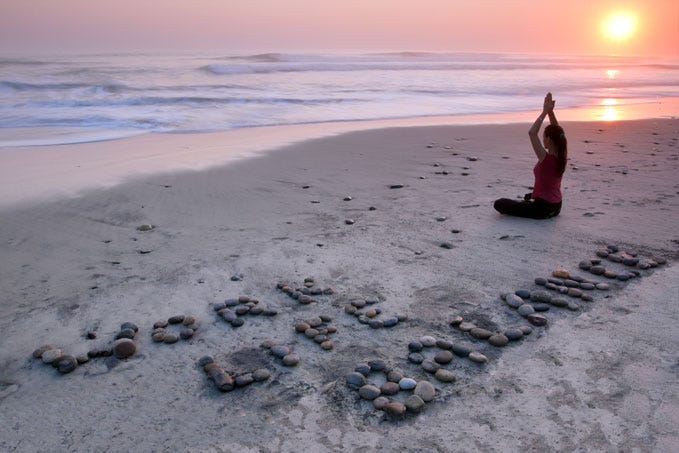
Recognize that no matter what it is that you do, work on, or aspire to, that does not define who you are. It’s a part of you, but it isn’t all of you, and you shouldn’t want it to be. Even at your young age, it’s important to recognize that.
So have a life beyond your work. Have some fun. Try new things. Get outside. Use your body. Take risks, get hurt, get better. Talk to people, and keep the interesting ones around. Be kind, be generous, and be open-minded. Push yourself beyond your comfort zone. Don’t become a one-dimensional caricature; you are not on the Big Bang Theory and you wouldn’t want to be. (The actual theory is far more interesting, and the vast majority of actual people who work on said theory are far more interesting, curious, diverse and multifaceted than what’s portrayed in popular culture, I promise.)

And keep questioning, and keep learning. When you understand not just what we know but also how we know it, it’s among the best feelings in the world. Don’t forget to share it with those you encounter along the way. And most of all, be honest with yourself. Don’t wake up one day to discover that you’re old, and you didn’t live the life you wanted. In the immortal words of Frank Zappa,
“If you end up with a boring miserable life because you listened to your mom, your dad, your teacher, your priest, or some guy on television telling you how to do your shit, then you deserve it.”
It’s your one life here in this Universe with your brain, your body, your thoughts, your experiences, and your choices. Now get out there and make it a fantastic year, and may you make it grow into a fantastic life!
Leave your comments at the Starts With A Bang forum on Scienceblogs!





